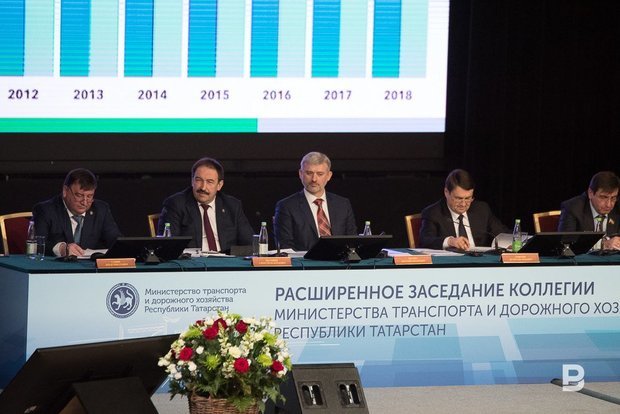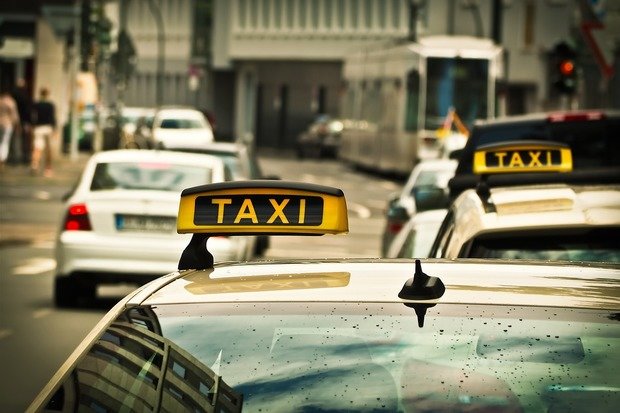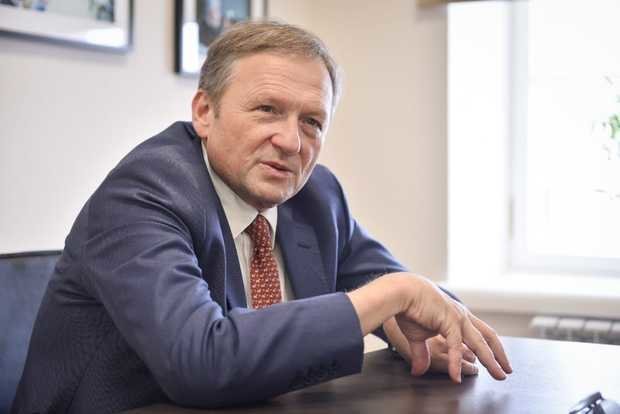Taxi drivers of Tatarstan urged to become self-employed, but they do not see benefit in this
While taxi services are all ''for'' the initiative
The government of Tatarstan intends to register 60,000 self-employed by the end of the year. First, they will start with taxi drivers: at the previous meeting of the ministry of transport, Prime Minister of Tatarstan Alexey Pesoshin asked the ministry to devise how to support those wishing to switch to the new tax regime. At the same time, taxi drivers doubt how useful this transition is going to be for them. Read the details in the material of Realnoe Vremya.
4% of the plan for self-employed in the first month
''The ministry of transport and roads must seek ways to bring from the shadows those who provide transportation services of passengers in private vehicles. We need to find an incentive and possible forms of support for potential project participants,'' said Alexey Pesoshin at the latest meeting of the ministry. As such support, the prime minister proposed to simplify certain registration or administrative procedures.
''From 1 January this year, the republic participates in a pilot project, an experiment is being conducted to establish a special tax regime, the tax on professional income. We have a serious task to attract self-employed to participate in the project as much as possible,'' he reminded.
Let us remind that Tatarstan is one of the four pilot regions that is going to test the new fiscal regime — the project has also been launched in Moscow, Moscow Oblast and Kaluga Oblast. The authorities intend to show a good result: at the January joint board meeting of the regional statistics body and the committee for socio-economic monitoring, Deputy Prime Minister of the Republic of Tatarstan Rustam Nigmatullin announced that Tatarstan has the task to register 60,000 self-employed during the year.
According to the Council on Entrepreneurship under the President of the Republic, as of 8 February, 2,543 self-employed were registered in the republic (a little more than 4% of the plan). In January, Rustam Nigmatullin reported that at that time the number of registered was 1,500. Chairman of the Committee on Socio-Economic Monitoring Valery Kandilov provided then other data — 900.

''People should make sure they are not being deceived''
According to tax relations expert Venera Kamalova, both natural persons and individual entrepreneurs can switch to the new regime. ''For its application, one only needs to install a mobile application or through their personal account to register as a self-employed and register in the tax agency," Kamalova explains. For some categories, this year there is a zero rate (for example, for nannies, cleaners), for taxi drivers the rate is from 4% to 6%: 4% a self-employed taxi driver pays if he provides services to individuals, 6% — if he enters into a contract with a legal entity-taxi company.
Interviewed by Realnoe Vremya services support the transition of drivers to the new status, assuring that the carriers themselves express the desire to become self-employed.
''For those who work for themselves, do not have employees, it is profitable,'' says the head of the public relations department of the service Taxi Maxim, Pavel Stennikov. The transition of drivers in the legal field will be gradual: ''People who are still in doubt, need to make sure that they are not being deceived, that everything will be simple, clear, feasible.''

However, according to the drivers themselves, the transition is beneficial only to those who have their own car. At the same time, their bulk works not as individual entrepreneurs, but under a contract, renting a vehicle.
''The programme is working with difficulties so far''
Yandex.Taxi and Uber (companies completed the merger a year ago) consult the drivers who intend to switch to the new tax regime.
In Tatarstan at the moment there are 1,200 carriers, performing the orders of Yandex.Taxi and Uber, registered as self-employed, says Rozhkova. According to her, the company's drivers from the very beginning of the experiment on the introduction of the new tax regime have shown great interest in the possibility to register in the new status: ''This makes it possible to connect to the platform directly without paying a commission to intermediaries: a self-employed driver pays a commission only to the service and has the possibility to quickly and reliably receive the earned money on a daily basis.''

Since it is more profitable for services to cooperate with legally working drivers, perhaps large aggregators will offer self-employed more favourable conditions, Kamalova suggests.
At the same time, Commissioner for Entrepreneurs' Rights Boris Titov, who came to Kazan with a working visit, noted the inconvenience of the application: ''The programme is working with difficulties so far, it is tedious to use it.''

''You know perfectly well a red tape it is in these tax offices''
''In the field of taxi, like in some other industries, many citizens are outside the legal field not because they want it, but just the conditions for the activities of all participants are not created legally. One of the ways to eliminate this defect of the system is being tested. This is a real opportunity to increase the legal market and make life easier for people,'' Stennikov said. The question is how to transfer as many drivers as possible to the state-controlled sphere comfortably, which is subject to rights and obligations, and to receive a reasonable tax on their activities, he continues.
With ''comfortably transference'', there are still questions. The interlocutor of Realnoe Vremya working in a taxi claims: the new regime is still unclear. ''It is the main work for me. I don't know what kind of tax I have to pay. My car is rental. It turns out, I first have to pay for rent 1,300 rubles a day. I need to earn these 1,300 at first. To earn 2,000, I need to spend 500 rubles for gasoline. This is a minimum, and if traffic jams — more. In total: I earned 2,000, spent 500 on gasoline, I have nothing in my pocket. So I have to pay out of these 2,000?'' he wonders.
The convenience of taxation also raise doubts of the carrier: ''Self-employed means that from time to time you will have to write some reports to the tax authorities. But you know very well what a red tape it is in these tax offices.''
The ministry of transport and roads did not prepare a timely comment on the request of Realnoe Vremya.